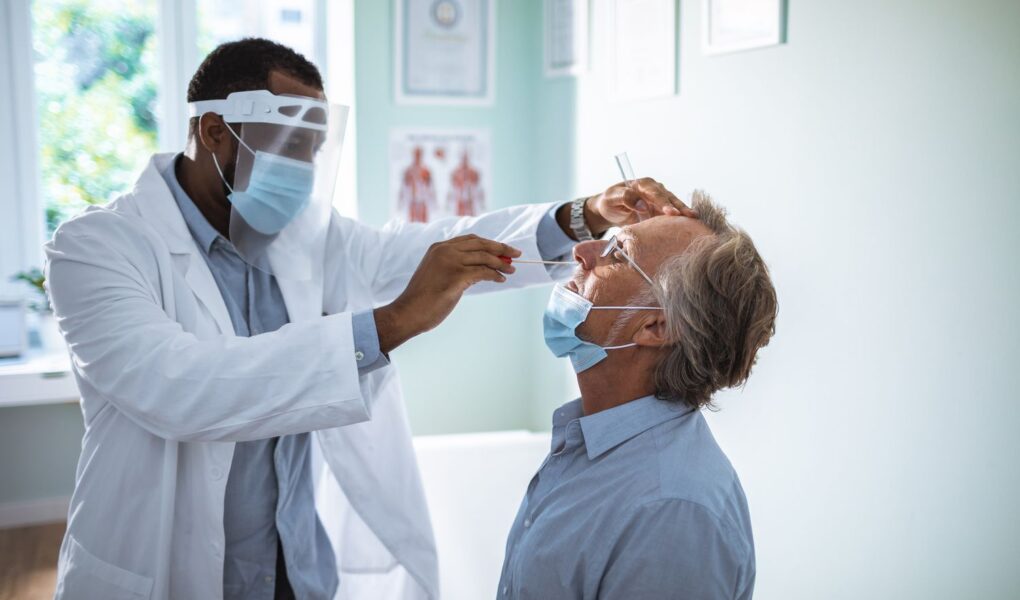The onset of the COVID-19 pandemic caused unprecedented changes that reshaped our world. Since then, it seems like it might take longer to eradicate the virus completely. Therefore, it is prudent that we brace ourselves to live with it for as long as it stays.
In the process of navigating the road to recovery, we must embrace testing as it plays a vital role in these post-COVID times. The good thing is that you can order lateral flow tests and find out whether you are infected in the comfort of your home.
In this article, we have developed a comprehensive guide that will equip you with the knowledge you need on various tests to enhance your safety and that of your loved ones as you thrive in the new normal.
Table of Contents
Understanding COVID-19 Diagnostic Tests
These tests are at the forefront of identifying and managing covid 19. They include:
Polymerase Chain Reaction Tests (PCR)
Samples for the PCR tests are collected through the throat or nasal swab. They are helpful in detecting the virus genetic material (RNA) in patients’ samples. Depending on the capacity of the health facility, It may take from a few hours to several days for them to produce results.
Rapid Antigen Tests
For these tests, you collect samples through the throat or nasal swabs. The rapid antigen tests, also known as lateral flow tests, detect particular proteins usually found on the virus’s surface. You don’t need to be a professional to use them, and the good thing about these tests is that they produce results within 15-30 minutes.
Antibody Tests (Serological Tests)
When infected with the coronavirus, your body fights back by producing antibodies. Serological tests are the tests that detect those antibodies that your body may produce in response to the infection. For this test, you need to give blood samples and get your results within a day.
What You Need to Know About Tests and Precautions for Post-covid Life
As you are aware, it is not a must that someone dies after getting infected with COVID-19. Even so, you have to be vigilant in taking tests and abiding by the preventive measures provided by the World Health Organization to avoid issues like COVID-19. Long COVID describes the effects of covid 19 that may last several weeks or even months after the initial illness. Research shows that as of the 5th of March 2023, 1.9 million people in the U.K. were struggling with long-term COVID-19, with 41% reporting that those symptoms had lasted more than 2 years.
Here is what you need to do:
Vaccination
If you haven’t done it already, make vaccination your priority, as it is one of the most efficient ways to safeguard yourself and those you love. As a critical aspect of life post-covid, vaccination protects you from hospitalization and severe illness. The more people embrace vaccination, the more countries have the privilege of acquiring herd immunity and, as a result, lower the spread of coronavirus.
You should also get the relevant information regarding timing and eligibility for booster shots from health authorities. Those shots help in maintaining your immunity, especially in case there are new variants.
Testing
If you experience similar symptoms to those of covid 19 or have had close contact with an individual who has tested positive for the virus, you should continuously get tested. Regular testing is crucial, especially for people who work in high-risk environments.
Also, if you travel internationally, remember that many airlines can only allow individuals who have tested negative to travel. So, ensure you comply with the requirements specific to your destination. For convenience and peace of mind, you must embrace at-home testing. Lateral flow tests have currently become the game changer for COVID testing. They have simplified administration, deliver fast results and are cost-effective, among other benefits.
symptom Monitoring
Now that you are fully vaccinated, it doesn’t end there. You need to stay alert and always monitor how you feel in your body, whether you feel like you have been exposed or not. You can watch out for symptoms like cough, fever, loss of smell and taste, or difficulty breathing. If you experience the above symptoms, kindly self-isolate and get a test. Once you get the results, remember to follow the set reporting and contact tracing guidelines.
Hygiene and Safety Measures
Never stop practising safe hygiene even when the rate of infection goes down. Always wash your hands with soap and water frequently, or use a hand sanitizer. When you are indoors and in crowded places, it is important that you wear masks to avoid getting infected. Whenever it is required or recommended, maintain physical distance.
Lastly, stay informed on the latest recommendations and guidelines from the authorities. Remember, the situation can change rapidly. Therefore, you must comply with all the regulations from the health department to safeguard yourself and your loved ones.




